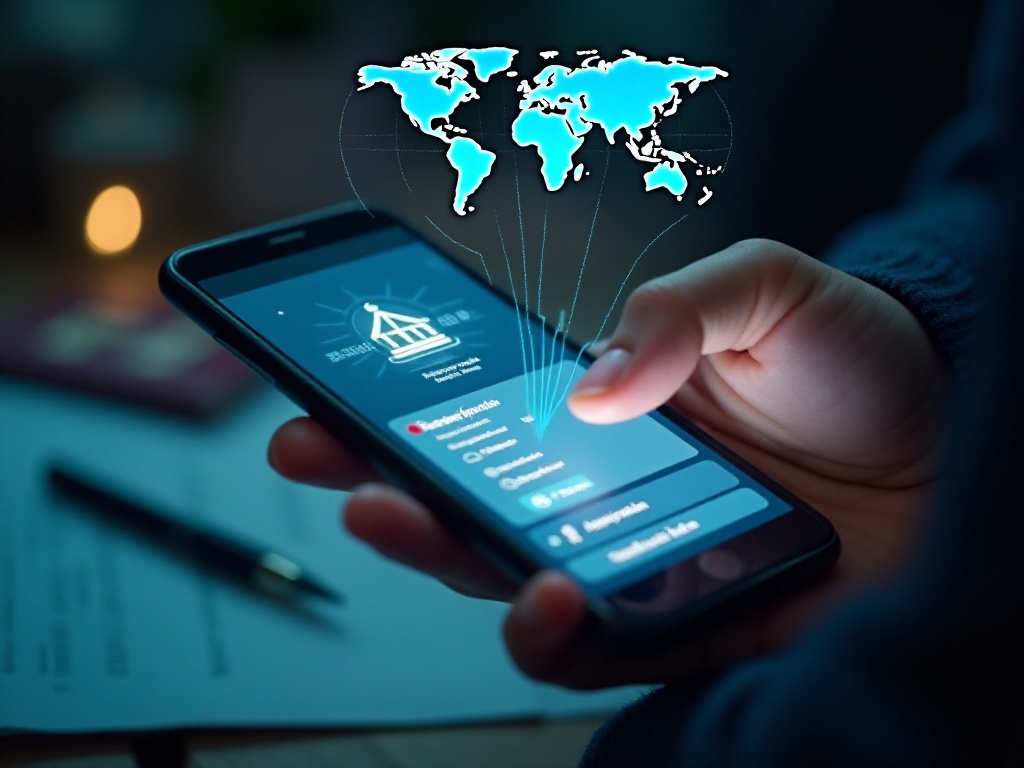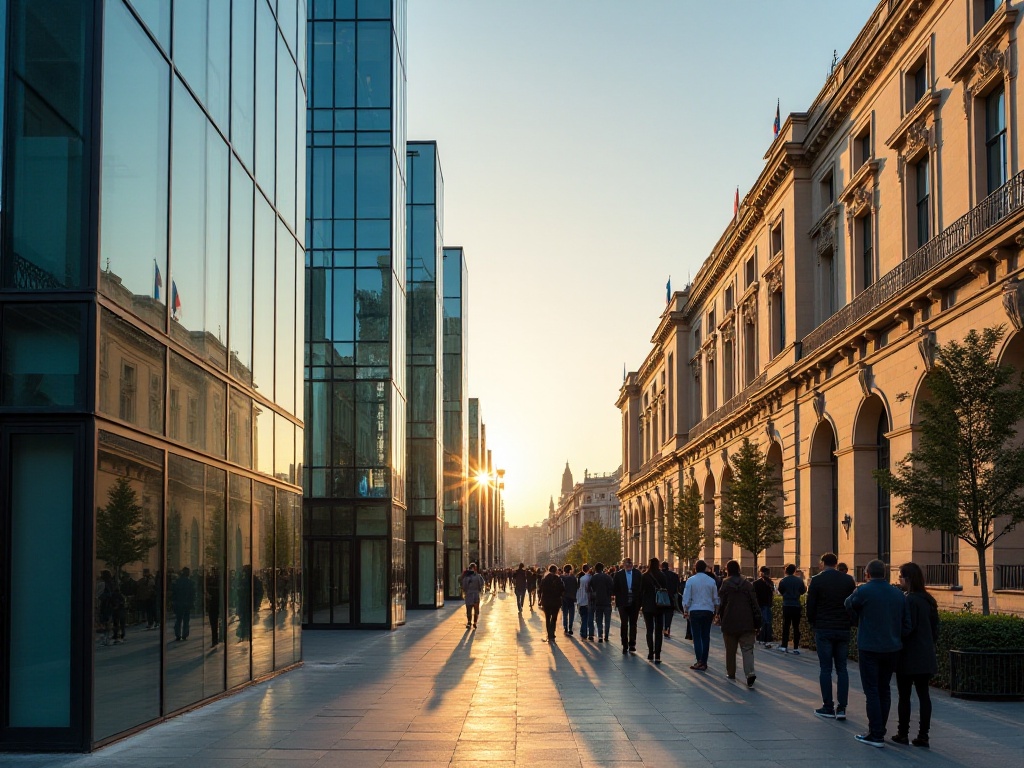Opening Thoughts
Hey everyone! Recently I've been bombarded with questions about US visa applications - my WeChat is almost exploding. As someone who has been to the US six times and gone through three visa applications, I'd like to share my experience with you today.
It breaks my heart to see friends looking so worried when talking about visa applications. Honestly, applying for a US visa is like dating - you're always nervous the first time, but as long as you're sincere, straightforward, and well-prepared, the success rate is actually quite high!
Visa Types
Let's start with visa types - this is the first step in choosing the right path. For most of us, the B-type visa is the most common. It's like a key that opens two locks: one for business (B1) and one for tourism (B2).
The B1/B2 combination visa is currently the most popular. It's like an all-rounder - want to have fun at Disney? No problem! Want to visit Silicon Valley to learn? Sure! Want to attend a business meeting? Still works! This visa usually has a ten-year validity period, which is incredibly cost-effective.
In fact, the B1/B2 combination visa has a very wide range of applications. For example, I have a friend who used this visa to attend several tech exhibitions in the US and toured the West Coast along the way, perfectly demonstrating the flexibility of this visa.

Application Qualifications
Regarding qualifications, friends often anxiously ask me: "My salary is just over 10,000 yuan, and I only have tens of thousands in savings - can I still apply for a US visa?" Whenever I hear this question, I can't help but think: brother, you're overthinking it!
What visa officers care about isn't how many zeros are in your bank account, but how stable your "anchor" in China is. This "anchor," professionally speaking, refers to social ties. Specifically, they want to see if you have reasons that require you to return to China.
These reasons can be diverse. For example, you might have a stable job where you clock in regularly every month; or you're still in school without a degree yet; or you have family responsibilities like caring for elderly parents. These are all very solid reasons.
Let me give you a real example. When I first applied for a US visa, I had only been working for two years at an ordinary company as a product manager, with a salary of just over 10,000 yuan and barely over 100,000 yuan in savings. But I had a relatively stable job and could clearly explain why I wanted to go to the US (to visit several tech companies and learn from their advanced experience), and I successfully got the visa.
On the contrary, I know a rich second-generation person with millions in savings who was denied a visa because they had no stable job and couldn't clearly explain their purpose for visiting the US. So, the key isn't how much money you have, but whether your life is stable and your purpose is clear.

Document Preparation
For document preparation, I suggest using a "three-dimensional matrix" approach: identity proof, financial proof, and social ties proof.
Let's start with identity proof. A passport is essential, and it must be valid for more than six months. If you've changed passports, it's best to bring your old one too, as it can prove your travel history. A copy of your ID card is also needed - some might ask, "Do I need to bring my ID card?" Actually, this is a small detail that shows you're well-prepared.
For financial proof, focus on "authenticity." Salary records should cover the last six months and reflect your normal income. I suggest getting these printed directly from the bank rather than taking screenshots online - it's more formal and credible. If you have investment products or funds, you can bring those statements too, but don't bring too many to avoid appearing overly eager.
The topic of bank statements is frequently discussed. Some say you need over 500,000 yuan, others say 1 million is safer. This is completely misconceived. I had only about 150,000 yuan when I first applied, and I still got approved. The key is that your savings should match your income and appear reasonable.
Social ties proof is often overlooked. Your employment certificate should be recent with clear stamps. If you work for a listed company, you can bring a company profile; if it's a startup, better bring a copy of the business license. Property deeds and vehicle registration documents can be brought but aren't necessary.
I have a special suggestion: prepare a simple itinerary. It doesn't need to be too detailed, but should show where you plan to go and stay, helping the visa officer better understand your travel purpose.

Interview Tips
The interview stage really tests your psychological strength. I remember my first interview - I lay in bed the night before, rehearsing scenarios in my head until 3 AM. Looking back, there was no need to be so nervous.
The visa officer's questions revolve around three core points: who you are, what you'll do in the US, and will you return? It's like dating - they want to know your basic situation, your purpose, and if you're reliable.
Let me share some practical interview tips:
First, language expression. Don't panic if your English isn't great. Visa officers are experienced with diverse applicants - as long as you can communicate basic ideas, you're fine. I've seen many friends with average English get approved using simple Yes/No answers plus body language.
Second, keep answers concise. Visa officers interview many people daily and don't have time for long stories. For example, when asked about your job, just say "I'm a software engineer at Alibaba" - no need to explain what projects you handle or what programming languages you use.
Finally, eye contact is important. Don't keep looking down at your documents; confidently look at the visa officer. This shows you're straightforward with nothing to hide.
I remember an interesting detail. During one interview, the visa officer asked what countries I'd visited, and I mentioned Japan and Korea. They suddenly asked what I liked best about Japan, and without thinking I said "ramen." The visa officer actually laughed, and the atmosphere immediately became much more relaxed.
Common Misconceptions
While helping friends apply for US visas, I've noticed many people fall into certain traps. Let me point them out.
The first big trap: thinking more savings is better. I had a friend who transferred 500,000 yuan from their parents to their account a week before the interview. When the visa officer saw this transaction, they immediately questioned its source. Such large deposits that clearly don't match your income level will raise suspicions.
Second trap: being too humble during the interview. Some people think they should be extremely respectful and end up speaking timidly. This actually makes visa officers suspicious. Remember, this is a normal visa interview, not begging for a visa. Maintain a natural, sincere attitude.
Third trap: preparing too many irrelevant documents. Some friends bring every certificate they own, then fumble during the interview. Visa officers want relevant materials, not quantity. Better to bring less but bring the right things.
Fourth trap: over-packaging yourself. Some people think they need to present themselves as extremely successful, but visa officers can immediately tell when stories don't ring true. They're experienced and can spot pretense. Instead of trying hard to package yourself, just be honest.
Fifth trap: blindly believing rumors. There are always various "experience posts" online about how to answer to guarantee approval. Actually, everyone's situation is different, and others' experiences may not suit you. The most important thing is to prepare reasonable explanations based on your actual situation.

Experience Summary
After years of experience, I've summarized some practical tips that I hope will help those preparing for US visa applications.
First, honesty is the fundamental principle. Truth be told, visa officers are more experienced than we imagine. Rather than racking your brain to make up stories, just tell the truth. I've seen people falsify salary statements to show higher income, only to be caught and permanently banned from entering the US - not worth it at all.
Second, preparation must be thorough. From filling out the DS-160 form, every step needs attention. Form information should be consistent, documents should be complete and authentic, and interview preparation should be comprehensive. Take my second application - because my previous visa had expired and I needed to reapply, I spent two whole weeks preparing materials to ensure every detail was perfect.
Third, have patience. US visa application isn't something you can rush - it takes time to do your homework. For example, many people hastily fill out the DS-160 form because they find it troublesome, then can't explain their answers during the interview. I suggest taking the form seriously, researching what you don't understand, and asking experienced friends if you're really stuck.
Finally, maintain a balanced mindset. Many people take the US visa too seriously and put too much pressure on themselves. Actually, visa application is just a normal administrative procedure - no need to be too nervous. Keeping a calm mindset helps you perform normally.
Speaking of mindset, let me add: being rejected isn't the end of the world. Many successful people I know were rejected on their first try. What's important is to learn from the experience, identify gaps, and try again. Like exams, failure is the mother of success.

Conclusion
US visa applications do require effort, but with the right method and thorough preparation, the success rate is quite high. Most important is maintaining a genuine, confident attitude and not letting nervousness affect your performance.
Everyone's experience is unique, so take these experiences as reference only. I hope this article provides some inspiration for those preparing to apply for US visas. Finally, I wish everyone pursuing their dreams success in getting their visas and realizing their American dreams!




